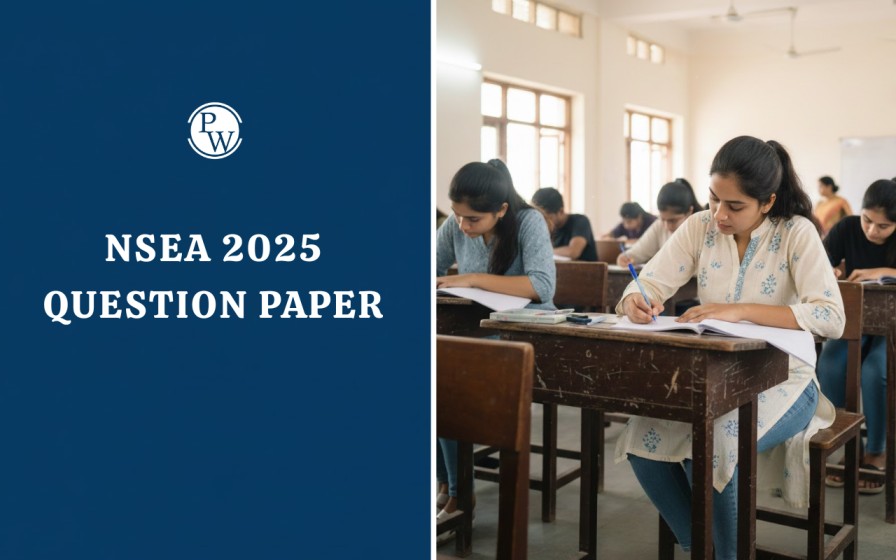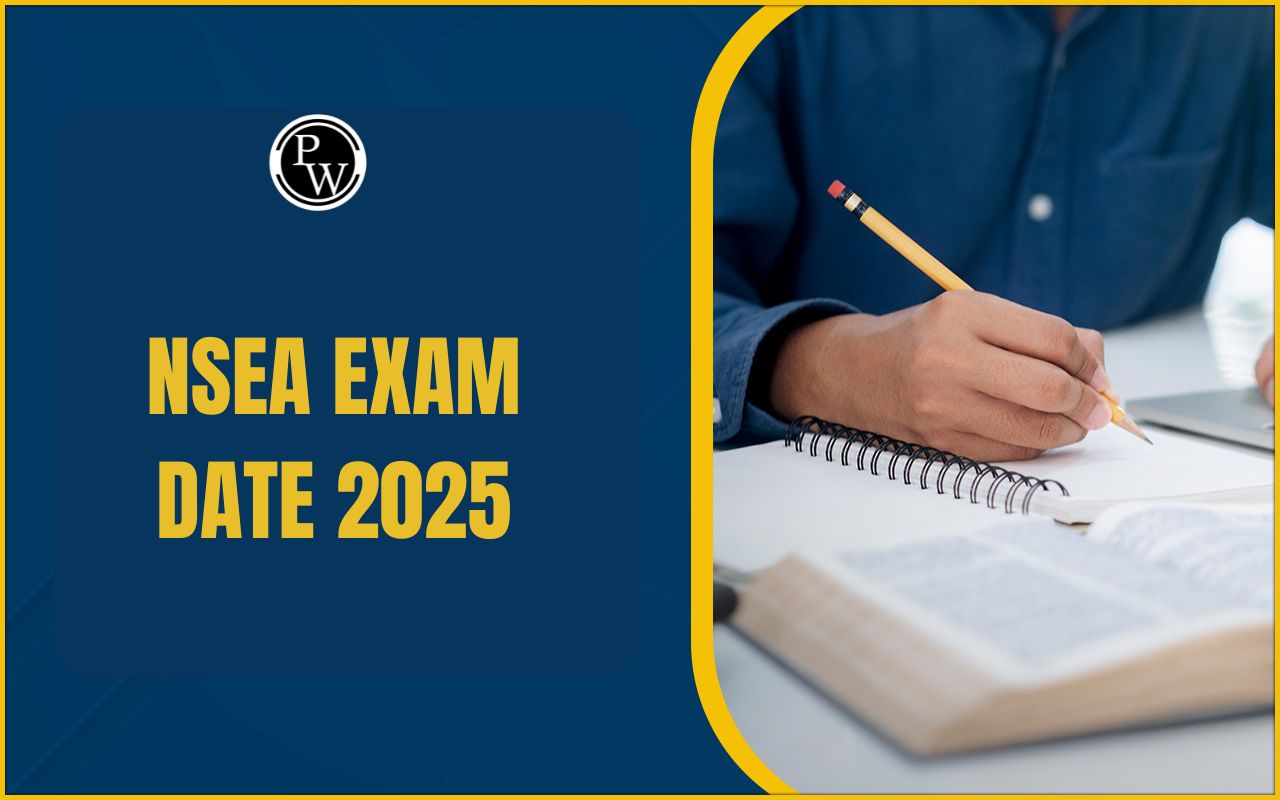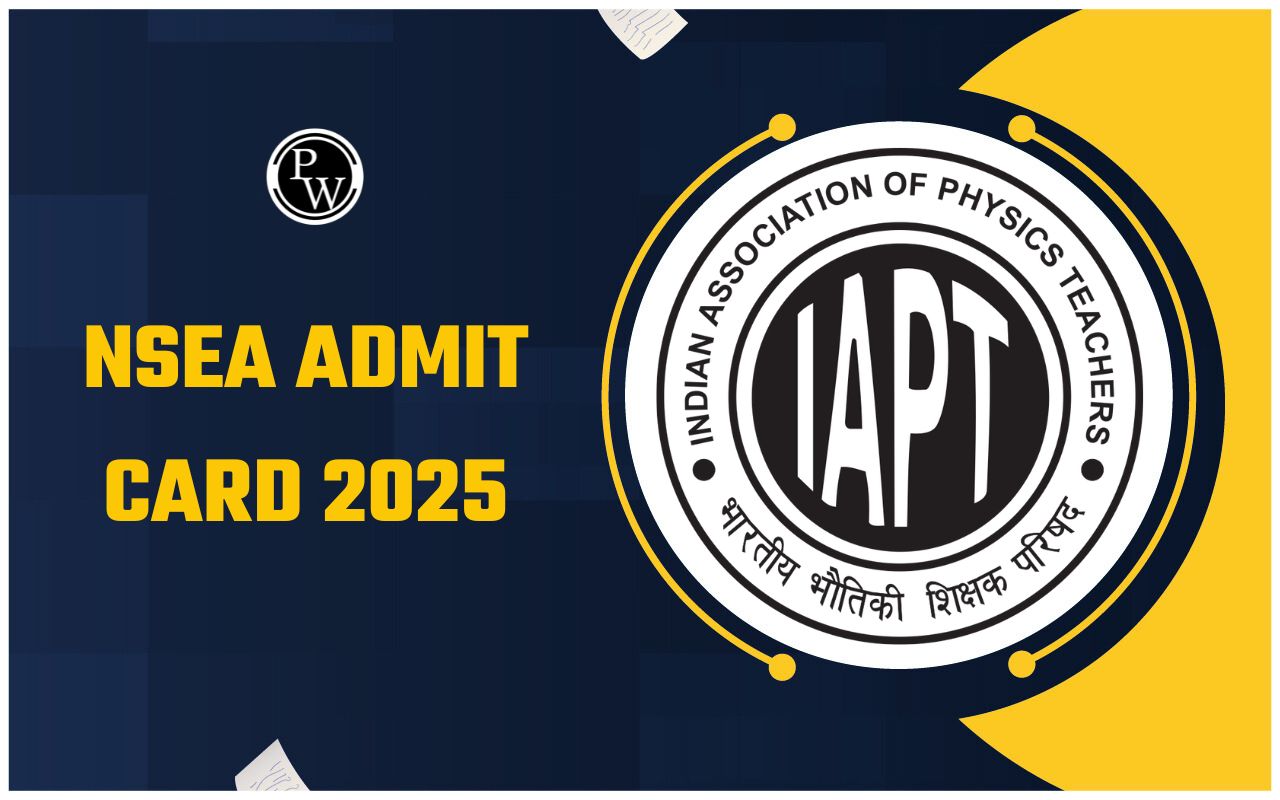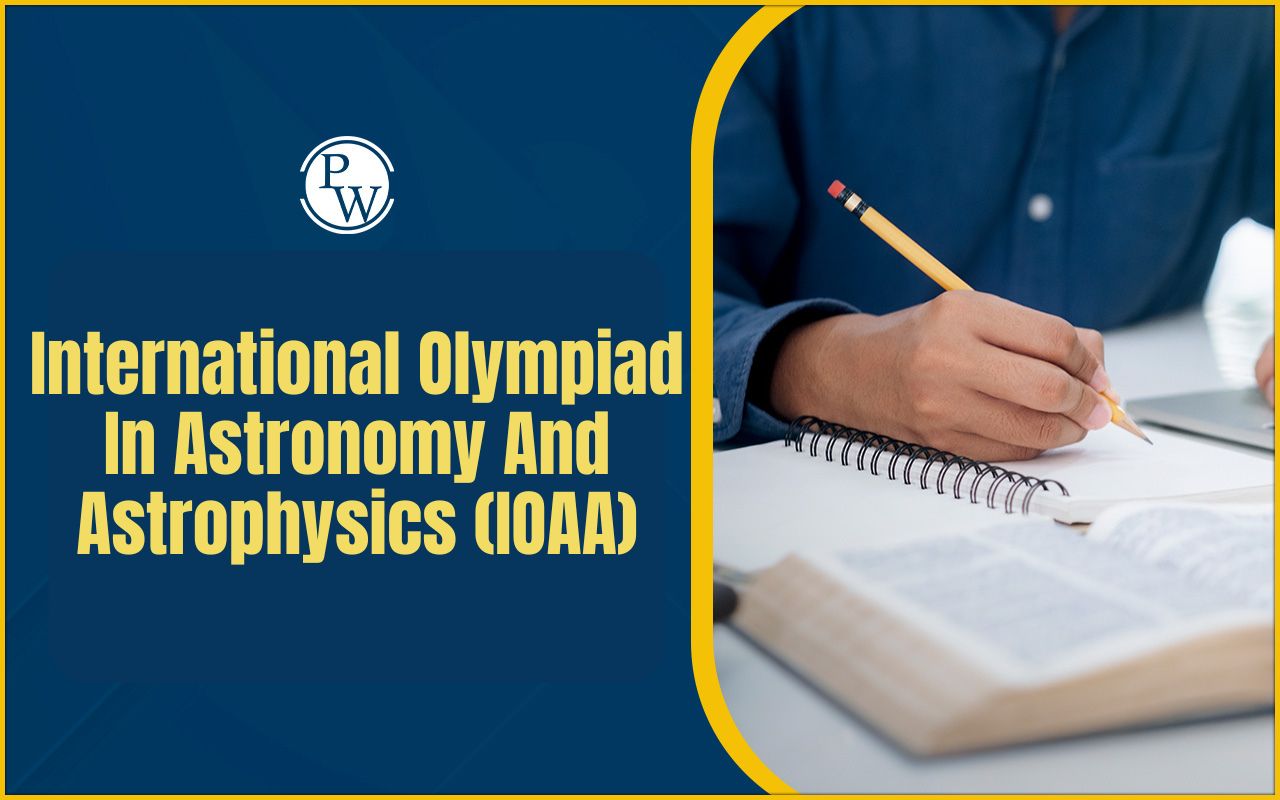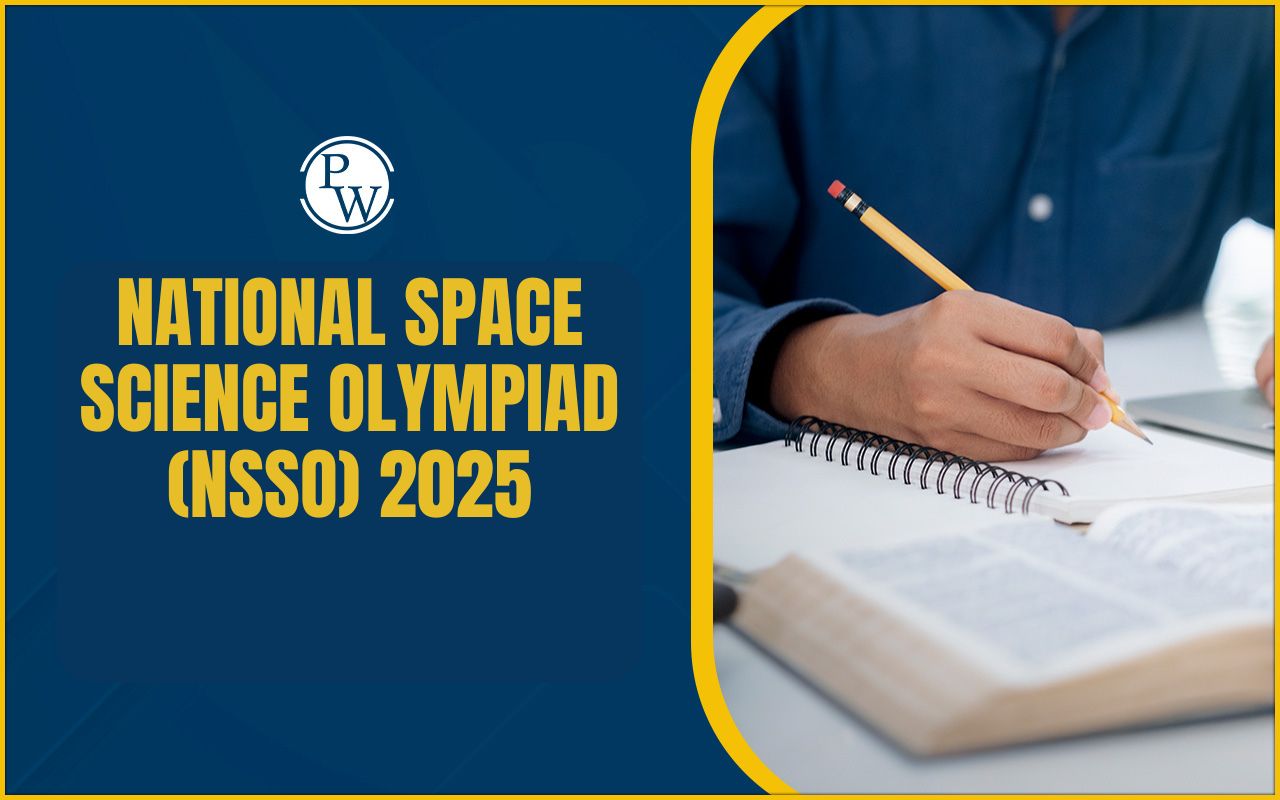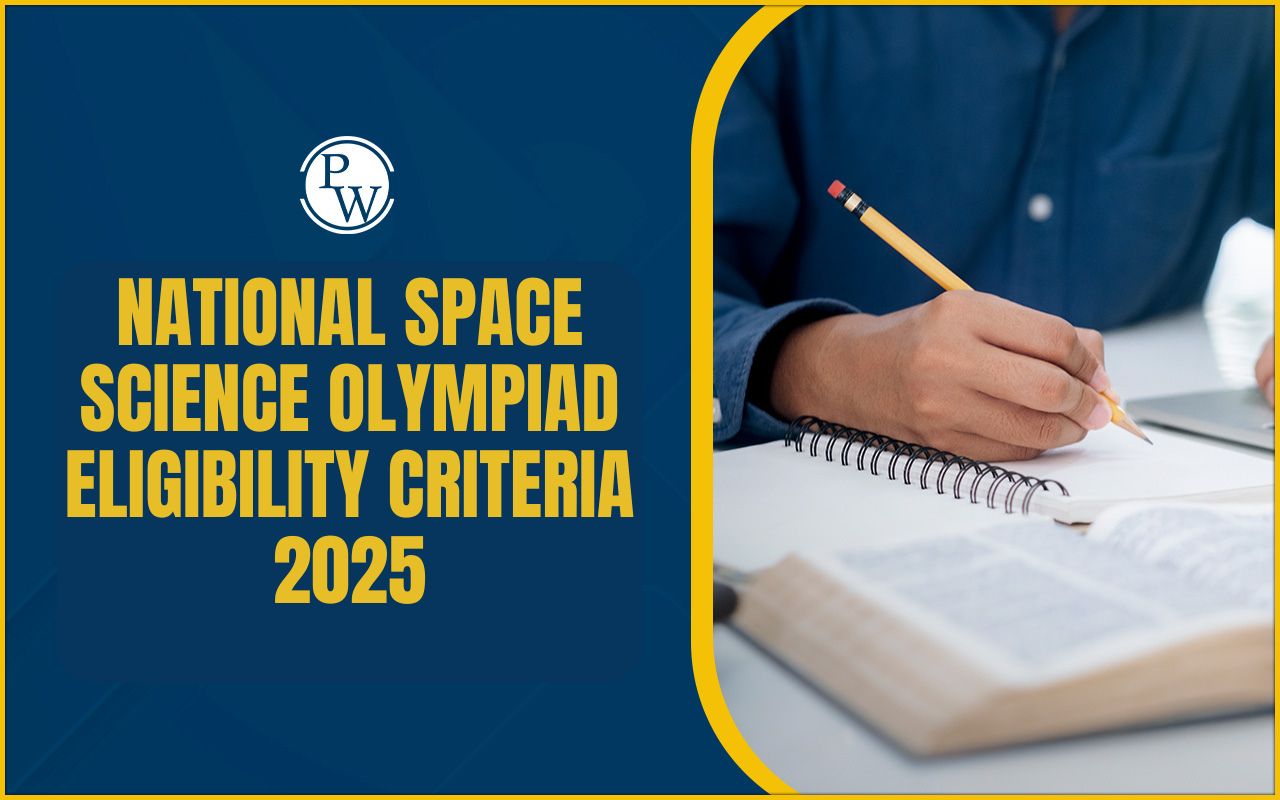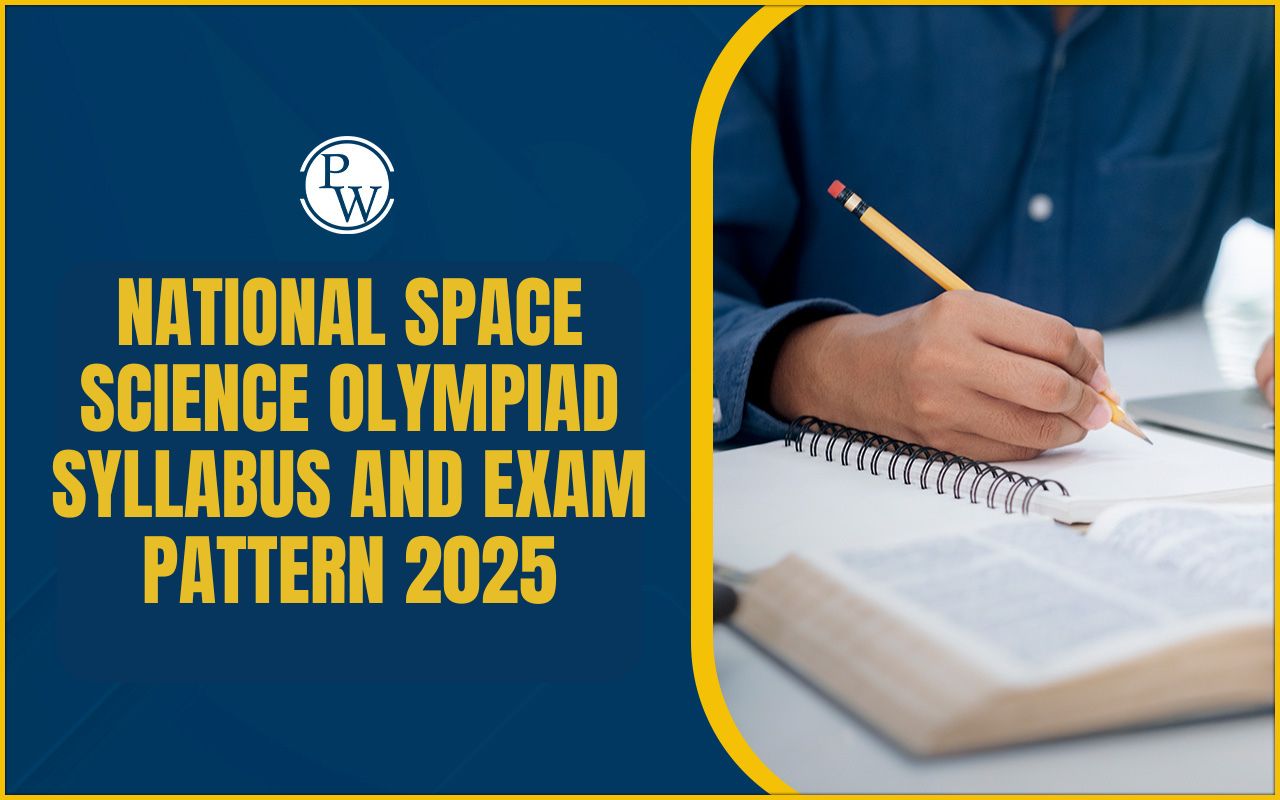
National Space Science Olympiad Syllabus: National Space Science Olympiad (NSSSO) is a national-level exam that encourages students to learn more about space science and astronomy. It is designed to test students’ scientific thinking and understanding of space-related topics in a structured way.
NSSSO is held once a year and gives students a chance to show their interest and understanding of space, planets, satellites and space missions. Those who perform well in this Olympiad get recognition, rewards and the opportunity to grow their interest in astronomy and science.
National Space Science Olympiad Syllabus 2025 Overview
National Space Science Olympiad (NSSSO) tests students' knowledge of space science, astronomy, and basic physics concepts.
|
National Space Science Olympiad Syllabus 2025 Overview |
|
|
Event |
Details |
|
Exam Name |
National Space Science Olympiad (NSSSO) |
|
Preliminary Exam Date |
September 13 & 14, 2025 |
|
Last Date of Registration |
July 31, 2025 |
|
Mode of Preliminary Exam |
Online |
|
Mode of Final Exam |
Offline |
National Space Science Olympiad Syllabus 2025
To help you prepare better, we have provided the complete syllabus details for the National Space Science Olympiad (NSSSO) 2025.
This covers both the preliminary and final rounds for all categories.
Junior Category (Grade 5,6,7)
Students in the Junior Category will be tested on basic concepts of science with a focus on space, astronomy, and general awareness about the universe. Here are the topics included:
Preliminary Level (Online Exam)
1. Artificial Satellites & Space Technology
-
Kepler’s Laws and planetary orbits
-
Different types of satellite orbits (LEO, MEO, GEO, etc.)
-
Fundamentals of rocketry
2. Indian Space Program
-
History of Indian space research
-
Centers and Units of ISRO
-
Indian rockets and launch vehicles
-
Indian satellites and space missions
-
ISRO’s future missions, including human spaceflight
3. Observational Astronomy
-
Basics of the night sky
-
Rising and setting of celestial objects
-
Constellations and asterisms
-
Celestial coordinate systems
4. Earth-Moon System
-
Tilt of Earth’s axis and seasons
-
Moon phases, tidal forces, and tidal locking
-
Lunar and solar eclipses
-
Formation and evolution of the Moon
Final Level (Offline Exam) – Junior Category
At the final stage, the questions become more application-based, encouraging students to think critically and use their understanding of space science in real-life contexts.
1. Telescopes and Observatories
-
Working of telescopes
-
Types of telescopes (Optical, Radio, X-ray, etc.)
-
Major observatories in India
-
Space-based telescopes and their importance
2. Measuring the Cosmos
-
Measurement of distances (Parallax method, Standard Candle method)
-
Cosmic scale and units of measurement
3. Stellar Physics
-
Atomic spectra and the Doppler effect
-
Basics of nuclear physics—fusion in stars, nuclear reactions
-
Energy generation in stars
4. Stellar Evolution
-
Life cycle of stars—protostars, main sequence, red giants, white dwarfs, neutron stars, black holes
5. Cosmology and the Universe
-
Expanding universe, Hubble’s law
-
Big Bang theory, evolution of the universe
-
Cosmic microwave background (CMB)
-
Dark matter and dark energy
-
Large-scale structure of the universe
6. Exoplanets and Future Space Exploration
-
Exoplanets and methods of exoplanet detection
-
Possibility of life
Senior & Super Senior Category (Grade 8 to 12)
This level focuses on deepening the understanding of core scientific concepts in space science, physics, and astronomy. The exam will emphasize conceptual clarity, application, and analytical thinking.
Preliminary Level (Online Examination)
1. Gravity and Orbits
-
Newton’s law of gravitation
-
Kepler’s laws and planetary orbits
-
Escape velocity and orbital velocity
2. Artificial Satellites & Space Technology
-
Different types of satellite orbits (LEO, MEO, GEO, etc.)
-
Fundamentals of rocketry
3. Indian Space Program
-
History of Indian space research
-
Centers and Units of ISRO
-
Indian rockets and launch vehicles
-
Indian satellites and space missions
-
ISRO’s future missions, including human spaceflight
4. Observational Astronomy
-
Basics of the night sky
-
Rising and setting of celestial objects
-
Constellations and asterisms
-
Celestial coordinate systems
5. Earth-Moon System
-
Tilt of Earth’s axis and seasons
-
Moon phases, tidal forces, and tidal locking
-
Lunar and solar eclipses
-
Formation and evolution of the Moon
Final Level Offline Examination – Senior and Super Senior
The final exam tests students' in-depth understanding of space science concepts, real-world applications and recent developments in astronomy and astrophysics.
1. Telescopes and Observatories
-
Working of telescopes
-
Types of telescopes (Optical, Radio, X-ray, etc.)
-
Major observatories in India
-
Space-based telescopes and their importance
2. Measuring the Cosmos
-
Measurement of distances (Parallax method, Standard Candle method, Redshift method)
-
Cosmic scale and units of measurement
3. Stellar Physics
-
Atomic spectra and the Doppler effect
-
Basics of nuclear physics—fusion in stars, nuclear reactions
-
Energy generation in stars
-
Sun and Space Weather
4. Stellar Evolution
-
Life cycle of stars—protostars, main sequence, red giants, white dwarfs, neutron stars, black holes
-
HR Diagram
5. Cosmology and the Universe
-
Expanding universe, Hubble’s law
-
Big Bang theory, evolution of the universe
-
Cosmic microwave background (CMB)
-
Dark matter and dark energy
-
Large-scale structure of the universe
6. Exoplanets and Future Space Exploration
-
Methods of exoplanet detection (Transit, Radial Velocity, Direct Imaging)
National Space Science Olympiad Exam Pattern
The NSSO aims to test students' understanding of space science, astronomy, and general scientific reasoning across multiple grade levels.
The exam is conducted in two levels Preliminary (Online) and Final (Offline) with separate patterns for Junior, Senior, and Super Senior categories.
|
National Space Science Olympiad Exam Pattern |
||||||
|
Category |
Level |
Mode |
No. of Questions |
Type of Questions |
Duration |
Subjects Covered |
|
Junior (Grade 5–7) |
Preliminary |
Online |
30 |
MCQs |
30 minutes |
Space Science, Astronomy, General Science |
|
Final |
Offline |
40 |
MCQs + Descriptive |
60 minutes |
In-depth Space Science, Workshop-based Questions |
|
|
Senior (Grade 8–10) |
Preliminary |
Online |
40 |
MCQs |
40 minutes |
Space Science, Physics, Astronomy, Current Space Events |
|
Final |
Offline |
50 |
MCQs + Application-based Questions |
75 minutes |
Conceptual & Analytical Space Science |
|
|
Super Senior (Grade 11–12) |
Preliminary |
Online |
50 |
MCQs |
45 minutes |
Advanced Space Science, Physics, Astronomy |
|
Final |
Offline |
60 |
MCQs + Case Studies/Problem Solving |
90 minutes |
Advanced Concepts + Research-based Topics |
|
Tips to Prepare for National Space Science Olympiad
Preparing for the National Space Science Olympiad (NSSO) can be exciting if you follow the right steps. Here are some tips to help you get ready:
-
Start by understanding the topics covered for your class level. Focus on space science, astronomy and general science.
-
Don’t wait till the last minute. Begin your preparation at least a month in advance.
-
Use your school science textbook and extra reading books related to space and planets. They help build strong basics.
-
Watch simple videos or documentaries about planets, rockets, astronauts, and the solar system. Learning through visuals makes it fun and easy to remember.
-
Solve past year papers and mock tests. This helps you understand the question pattern and improves speed.
-
Take part in space-related quizzes online. They are short, fun, and boost your confidence.
-
Read small articles or watch short videos about new things happening in space, like ISRO or NASA missions.
-
While studying, write down important points. You can revise them quickly before the exam.
National Space Science Olympiad Syllabus FAQs
What is included in the National Space Science Olympiad syllabus?
Does the National Space Science Olympiad syllabus differ for juniors and seniors?
How should I prepare for the National Space Science Olympiad syllabus?
When will the National Space Science Olympiad exam be held?

